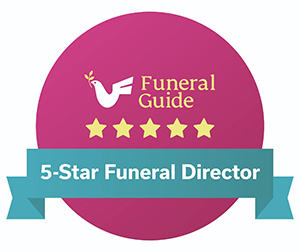It is normally the next of kin that is with their loved one in hospital when they pass away. But, what does “next of kin” mean, who has a say and what are they responsible when someone dies? Next of kin refers to the person who had the closest relationship those who have passed away. This is normally something that families work out as a collaborative. But, identifying next of kin status can sometimes be complicated.
Who Is Next of Kin When Someone’s In Hospital?
When someone is admitted to a hospital, the staff will ask them who their next of kin is. It’s very normal for people to name a close friend instead of a relative. If they are admitted unconscious, the staff will get in touch with a close relative to them to act as a next of kin. They normally choose a spouse, partner or parent. During the hospital stay, the next of kin will be kept up to date on their loved one’s condition. If they are unconscious, the staff will ask the next of kin for advice on what their wishes might be. But, they cannot refuse or consent to any treatments on their loved one’s behalf. When somebody dies in hospital, the bereavement team will contact the next of kin so they can collect their loved one’s belongings and start making funeral arrangements.
Who is Next of Kin When Someone Dies?
Next of kin isn’t identified in UK law. But, it’s usually a partner, parent, child or another blood relative that makes the arrangements for the funeral when their loved one passes away. However, anyone can organise a funeral service for someone, and it is normally this person that takes responsibility for paying for the funeral, which might be covered by money left in an estate. If those who died took out a pre-paid funeral plan when they were alive and paid off in full, then the financial side of their funeral service will already have been taken care of.
Inheritances
When a person writes a will before they pass away, they can leave money, assets and estate to whoever they want. However, when someone passes away without leaving a will (also known as dying intestate), there is a defined order of relationships that will determine how an estate will be received or shared out. A spouse or civil partner are normally defined as next of kin when someone dies intestate. Children then follow the order precedence in terms of next of kin when someone dies intestate. Long-term life partners, who not legally married are not regarded as next of kin and cannot inherit any personal belongings or assets.
Dealing With An Estate Without a Will
The next of kin might have a legal entitlement to deal with their loved one’s estate when no will has been left. However, in order to obtain the legal right, they need to apply to be appointed as an administrator of the estate. This involves applying for something known as a Grant of Letter of Administration. One someone has been appointed as an administrator; they gain legal rights to access their loved one’s personal bank accounts and other assets. When there are several next of kin involved, it could create some difficulty and contention if there is no agreement.
Stibbards & Sons Are Here to Help
Stibbards & Sons can help you if you need assistance when it comes to leaving a will for your loved ones. We have been serving our local community since 1867, which means that every detail, no matter how small is just as important to us just as much as it matters to you. If you would like to talk to us about leaving a will or one of our pre-paid funeral plans, please get in touch through our contact page or call us on 01702 558 717 today.







